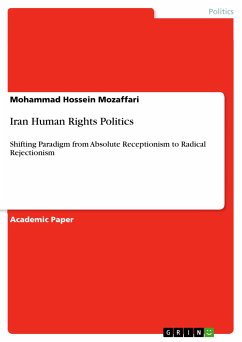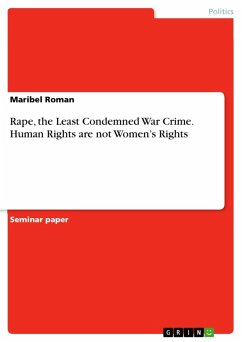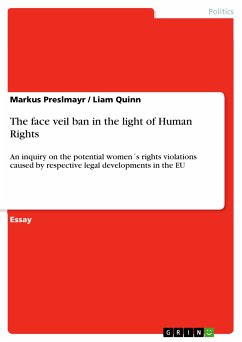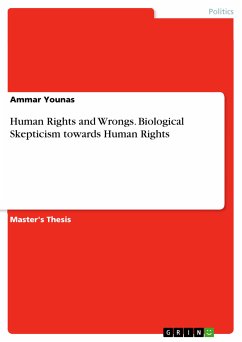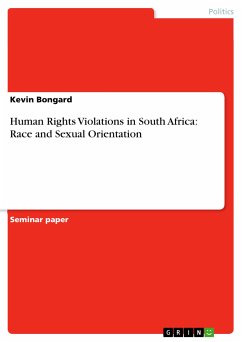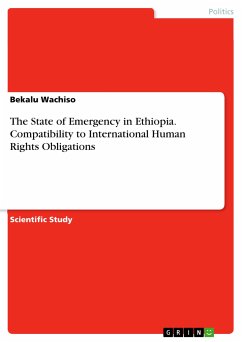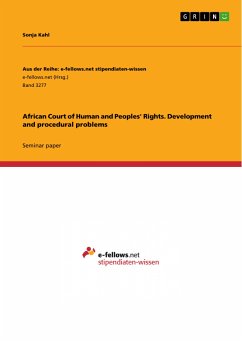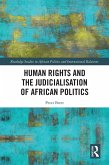Academic Paper from the year 2017 in the subject Politics - International Politics - Topic: Public International Law and Human Rights, , course: Human Rights, language: English, abstract: This paper seeks to examine the complicated aspects of Iranian human rights politics in various periods and to explore the Iran exceptionalism in human rights discourse in the light of competing paradigms from receptionism to rejectionism. The first part of the paper deals with the Iran human rights policy from the lens of receptionism, while the second part of the paper discusses the rejectionist policy which was adopted following the Islamic Revolution. The third part shall focus on the paradigm shift to reservationism in the course of second and third decades after the Islamic Revolution. Then, the next paradigm shift resulting from the dichotomy is scrutinized in view of the political changes in the country. Finally, the paper concludes that the paradoxical Iranian policies towards human rights might be explained through understanding the specific characteristics of the legal system of Iran.
Dieser Download kann aus rechtlichen Gründen nur mit Rechnungsadresse in A, B, BG, CY, CZ, D, DK, EW, E, FIN, F, GR, HR, H, IRL, I, LT, L, LR, M, NL, PL, P, R, S, SLO, SK ausgeliefert werden.

